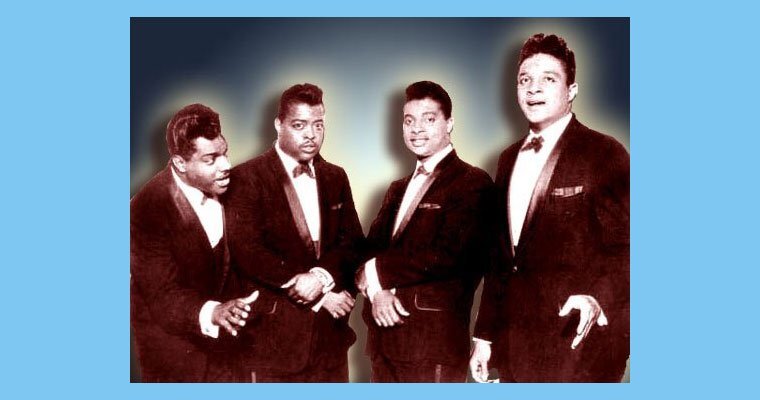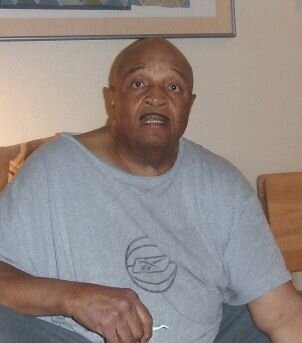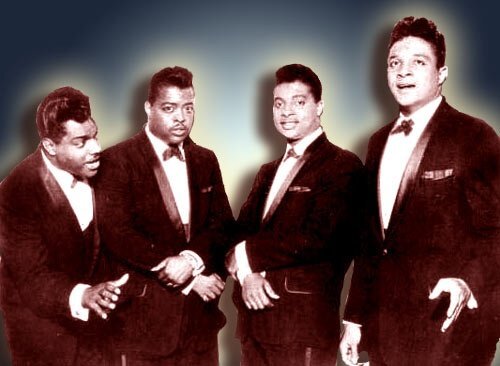I Love Detroit - Sonny Munro - Falcons Interview by Rob Moss
his musical legacy dates back to the mid 1950s

I Love Detroit - Sonny Munro - Falcons Interview
Conversations with Americans can run the full gamut of human intelligence, understanding and thought. On a recent trip to Detroit I encountered a white bar tender in his late 20s, working at a renowned restaurant in the city, who seemed fascinated by the sight of a sterling five pound note I was showing a fellow patron. As he inspected it a couple of questions sprung forth. “Who is this woman?” he inquired. I politely responded that it was the Queen, to which he then asked “Is she still alive?” When I told him that she was, he seemed genuinely shocked. “Wow, that is weird, 'cause over here you have to have been dead for at least a hundred years before they put your face on a bill.” I ordered another drink and thought of Homer Simpson for some reason.
A rather more inspired and illuminating discourse took place at a run down community centre on the upper West side with a female film/documentary maker, who had spent the past three years of her life producing a fascinating visual profile of two parts of the downtown core that have since been bulldozed and replaced by a motorway, a block of flats and a baseball stadium – 'Black Bottom' and ' Paradise Valley'. Until the early 1960s, these areas housed most of the black owned businesses in Detroit, created a vibrant entertainment and hospitality scene and were home to the majority of black residents in the city, at a period when whites greatly outnumbered them. The shift in population, from the late 1950s, when whites made up 85% of the city's inhabitants, until today, when blacks now represent the very same percentage, is truly amazing, and goes some way to explaining why the outer suburbs of greater Detroit seem to get both greener and whiter as one travels north, away from the city itself. The actual Detroit City Limit is at Eight Mile Road, the boundary immortalized by Eminem and cynically referred to by some local whites as 'The Moat'.
My next conversation took me well inside the castle's walls, if that's in fact what it is, to the home of one of Detroit's best and most revered singers - Carlis 'Sonny' Munro - who provided revelations and disclosures that would, at times, leave me dumbfounded.

His musical legacy dates back to the mid 1950s when he joined forces with high school buddies James Gibson, John Alvin and Frank Holt to form The Fabulous Playboys.
“We started off singing on street corners in the neighbourhood and then entered local talent shows. We were good too. Robert West approached us to be our manager. He already had The Falcons with (Wilson) Picket, Joe Stubbs and Mack Rice and they were getting hits so we went with him. We had a couple of tunes cut with Don Davis, who was just starting out then, but they didn't sell in big numbers. He was a crook and an asshole in my opinion. Nat Tarnopol (Jackie Wilson's manager) wanted me to come to Brunswick as a solo artist and was offering $50,000 to get me. He told Don Davis about this but he didn't tell me. It was only when Nat offered my buddy James (Gibson) $20,000 if he could get me to come to Brunswick that I found out. Then Robert West found out and told him 'no'.
Don Davis wasn't liked by anyone in Detroit. He had to take his productions down to Memphis in the end but I heard that they didn't like him too much down there either. James and I wrote this song called 'Crazy' which we took to Don. He passed on it but then recorded it on Emanuel Laskey and put his name to it as the songwriter. You won't find many people in Detroit with a good word to say about Don Davis, I can tell you.”
The Fabulous Playboys became The Falcons in 1963 when the final manifestation of the group drifted apart and Robert West, keen to capitalize on the group's reputation and stature, suggested the change. “
We knew their material so it was quite smooth. He'd done a deal with Atlantic and we did cut for them but the record bombed. We were on that 'live' Apollo album and we really tore the place up. We cut some tunes on his own Lupine label too but they weren't big hits either. We made most of our money in that early sixties time on the road on the college circuit and especially in Montreal. That was a hot city back then, '64 and '65 – there were lots of clubs and we played them all. James could speak French too. They just loved us up there. Problem was that Robert West was messing with Mary Wells and ended up getting shot. She was a married to a hustler called Herman Griffin. Her contract was up at Motown – that would be late '63 or early '64 I believe. Berry Gordy hadn't realised that she would be a free agent on her twenty first birthday and hadn't re signed her. Griffin wanted to get her with ABC and they approached Robert to negotiate for her. He was a good negotiator and he was working on a good deal for her. Then someone shot him in the face. I think they meant to kill him. He survived but was kinda out of the game. People thought that Motown were behind it but no one was ever charged. Mary Wells went to ABC but her career never reached the heights everyone was expecting. I guess she and Herman Griffin made money out of it though. After Robert was shot we got a phone call from a guy called Frank Kosian, who we didn't know, telling us that he was our new manager. He worked for the Shaw Booking Agency who had taken over our contract when Robert was shot. I don't know whether Robert had given us to them or what had happened but Shaw was run by some powerful, well connected people so we didn't argue. We couldn't. Frank set up his own Big Wheel label in Detroit and we began recording and performing for him.
Our first sessions were at Golden World with Dale Warren. When (Ed ) Wingate saw us he wanted to sign us on the spot!” And he was not the only Detroit label owner who kept tabs on the group's progress. “When we appeared with Stevie Wonder at the Apollo, I believe that was around '62 or '63, he went straight back to the company and told them that they've gotta sign us. Norman Whitfield was after us. Man, he would show up everywhere telling us what songs he had for us but we were associated with some really powerful people in New York so they backed off.”

The strength of The Falcons' material during the mid 1960s was due, in large part, to the writing abilities of group members, especially Munro and Gibson.
“I used to love writing with James. We really gelled together well – and we used to burn the midnight oil too. The other guys ( John Alvin and Frank Holt's replacement Alton Hollowell) complained that they weren't getting any writers' credits but we had a big discussion and told them that if they added something to the songs then we would credit them, and later on that's just what we did.” The subject of the mysterious Doll Face recording 'Please return' on Enterprise Records, that was credited to all four members as writers, drew a blank expression from Munro, and is not listed in his BMI songwriting repertoire. Another song not listed provides a rare glimpse into the seedier side of the industry. “James and me were at a bar one night and I overheard this woman talking to her girl friend. She said ‘If you can't be with the one you love then love the one you're with.’ and I thought that would make a pretty good lyric. James agreed and ran with it. The next day we wrote the song together. I did the music and James came up with all the lyrics. We sent it to Atlantic Records but they didn't respond. The next thing we know is that this bunch of white guys, 'Stills, Crosby, Nash' record it and it is a smash. The Isleys covered it too. We wrote that song but we didn't get a dime.”
One song they did make money on however was 'Standing on guard'.
“When it was first released the black radio stations in Detroit wouldn't play it – they said it wasn't 'noisy' enough. But the white stations loved it and the people starting asking for it so the black stations had to play it! It shot to number one in Michigan and sold a million copies in that state alone. Frank (Kosian) collected $100,000 from the distributors and then got another $90,000 in quick time. And he didn't need to pay any payola!”
Monro's time as a Falcon in the 1960s brought him into contact with many of the most famous and revered figures of the period. His observations are not always the most flattering though.
“In '68, I believe it was, we did a session with Ollie McLaughlin as The Firestones 'cause we were still technically signed to Big Wheel as The Falcons. He was the guy who had discovered Deon Jackson and Barbara Lewis plus some others, and man he was a bigger hustler than Don Davis. He didn't promote our record at all and he laughed about it. Mack Rice was trying to help us but as soon as he saw who it was, and what was going on, he gave up.” The Falcons 'live' performances in Detroit always drew a large and distinguished audience. “When we played Phelps' Lounge the (Motown) studio would come to watch us. If we were on for five nights the Tempts would be there four of the nights. I remember what a gentleman David Ruffin was, with me anyway. We would sit and talk for ages. But he was into drugs in a big way. I remember seeing him at a show backstage one time and he had a pile of coke in the middle of this table, and a lot of reefer. There were a few guys there from other Motown groups too. He offered me whatever I wanted but I wasn't into that junk. It was sad to see such a great talent go that way.”
His contacts with prominent Motown figures stretched back to the turn of the decade and weren't always the friendliest encounters.
“James and Harvey Fuqua nearly got into a fight one time. I was going with his girlfriend and James was going with Marvin's girl, one of the Gordy sisters (Anna). It got resolved though. We used to see a lot of them around town or on the road. Stevie was always a real gentleman and Duke (Fakir) and Lawrence Payton from The Tops were good guys. The Supremes were always coming around to see us and Diane (Ross) was always chasing me. I remember we were playing the Greystone Ballroom one time with Eddie Holland and Dionne Warwick, and Eddie says to me 'Hey Sonny, here comes your girlfriend!' Marvin Gaye told me that he didn't like her at all. He said she was like a spoiled kid, always wanting to be the centre of attention. Florence Ballard was kicked out of the group because she beat the shit out of Diane one time. She was tight with Berry Gordy and she put pressure on him to get rid of her.” And this was not the only physical confrontation that Munro recalled. “Berry thought he could fight, but Marvin whupped him a couple of times.” The long running speculation regarding any possible Mafia influence in Gordy's operations received scant attention. “They ran it man. He owed them money and they told him ‘This company is ours'. Everybody knew it. He wheeled and dealed but they ran the show. They made him get out of Detroit too - told him to go out to California. That's why they left so quickly.”
The Falcons toured the U.S. and Canada extensively during the 1960s and met and performed with most of the biggest stars of the era.
“We were playing at the Howard Theatre in Chicago one time, and Billy Stewart and Wilson Pickett were on the same bill. We knew Pickett from Detroit. I never had any problems with him but not many people liked him. He was kinda brash, loud and obnoxious to people. Thought he was superior and everyone else was beneath him. Anyway, I don't know why but him and Billy Stewart had got something going on. Pickett goes on and while he's singing 'Mustang Sally' starts singing '...all you gotta do is ride around Billy (instead of 'Sally'). When he came off stage Billy starts to choke him and we had to pull them apart. It was really funny. Pickett thought he was tough but he wasn't. (Ex Falcon) Willie Schofield told me that he picked a fight with some guy down South and lost an eye. That's when he started wearing dark glasses.”
Another clash of egos took place when Jackie Wilson and James Brown played their only performance on the same bill together in Fort Lauderdale, Florida.
“Jackie Wilson was on before James and just blew the crowd away. It was impossible to follow him but he had to, and man was he pissed off. He wanted to fight him, to establish superiority, but Jackie was a Golden Gloves champion so it didn't happen. James Brown made sure that they would NEVER appear on the same bill again. I met Jackie on that same show. We had already performed and he called me to his dressing room. A lot of people said that I looked a lot like him and I guess it had reached him. When I went in he had a large glass of whisky in front of him and he poured me one too. They were big glasses containing a fifth (almost half pint) of liquor. He said to me ' Everyone been talking 'bout you everywhere I go, calling you my little brother, saying you look like me but you sing like Pickett!' We had a good conversation about this and that and I sipped at my drink. When it was time for him to go on he just stands up downs the whole fifth and delivers this great show. What an entertainer!” He wasn’t so enthusiastic about James Brown. “He was very egotistic. His ego was inflated like the Goodyear blimp. I remember once we were performing at the Apollo and he just came onto the stage and joined us …we didn’t ask him, he just came out. I got along with him OK but we weren’t friends.”
The group finally drifted apart when Frank Kosian went ‘missing’ in late 1969 and everyone went their separate ways.
“He owed a lot of money to some very powerful people and just dropped out of sight for five years. He continued to make money out of us though. We were not very smart – we gave him power of attorney. That’s when I joined Clyde (Wilson) and Eddie Anderson in ‘100 Proof’ (Aged in soul). Prior to that Mack Rice was riding my ass to come down to Memphis to replace Ollie (of the Nightingales). He begged m to go down there. Ollie had a drug problem and spent some time in jail but I wanted to stay in Detroit. A few years later James hooked up with Joe Stubbs, Ben Knight and another guy to try and resurrect The Falcons (for Atkins All Stars Records) but that didn’t work out. I guess Joe screwed the money up. James died of prostrate cancer in 1984. That really upset me. He was my best buddy and I still miss him – big time.”
Munro’s recording career continued unabated however when he signed a solo deal with Epic Records in the early 1970s.
“Johnny Powers arranged that deal. There were some top people on those sessions – Paul Riser was the arranger and Clarence Paul produced. They put two 45s out, even though we cut enough tunes for an album, but they didn’t sell like they expected, probably because they didn’t market it or promote it very well, so I left.” He finally completed a released solo album in 1978 with ‘I was made for love’
for Warner Brothers. “That album came about through Westbound Records and Armon Palladium. He did the deal with Warners. The executive producer was a guy named Pat Meehan. He really liked me. He put $30,000 of his own money up and got the Detroit Symphony Orchestra on those sessions. That’s the album that ‘Happiest days of my life’ came from. Mike Theodore produced it. I didn’t get any royalties from that album because it turned out that Armen Boladian owed Warners 2 million dollars and they clawed it back from that album. If it wasn’t for Mike, I wouldn’t even have been paid for those sessions. He made sure that I was paid $10,000 for singing.”
A resurrected version of The Falcons was assembled by Sonny Munro for several ‘live’ appearances in both the U.S. and Europe in recent years.
“We played in Northampton, England in 2006 but I was sick and the other two members Daak Stephenson (formerly of The Magictones) and his wife Charnissa were tough to work with. I’ve since let them go their own way. The latest group is the best. I’ve recruited two new group members and have added two of our own musicians to the line up. It’s just like the old days!”
Rob Moss
August/Sept. 2008
https://www.hayleyrecords.co.uk



Recommended Comments
Get involved with Soul Source
Add your comments now
Join Soul Source
A free & easy soul music affair!
Join Soul Source now!Log in to Soul Source
Jump right back in!
Log in now!